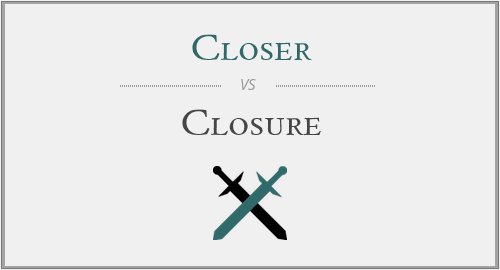Homophones are words in English language that are pronounced the same way but have different spellings and meanings. One such pair of words is closer and closure.
I will discuss their meaning and usage in English language in detail today.
Closer as noun:
In English, closer is used as a noun to represent the last act of a performance.
Example:
The play’s closer was perfect.
Closer as adjective:
Closer is the second degree of the adjective close which represents something that is near to something or not far apart.
Example:
The lion got closer to the dear slowly.

Closure as noun:
As a noun, closure means the action of closing something.
Example:
His school faced closure due to government issues.
Closure as verb:
Closure is also used as a verb where it means to close a speech in an assembly.
Example:




Have a discussion about this article with the community:
Report Comment
We're doing our best to make sure our content is useful, accurate and safe.
If by any chance you spot an inappropriate comment while navigating through our website please use this form to let us know, and we'll take care of it shortly.
Attachment
You need to be logged in to favorite.
Log In